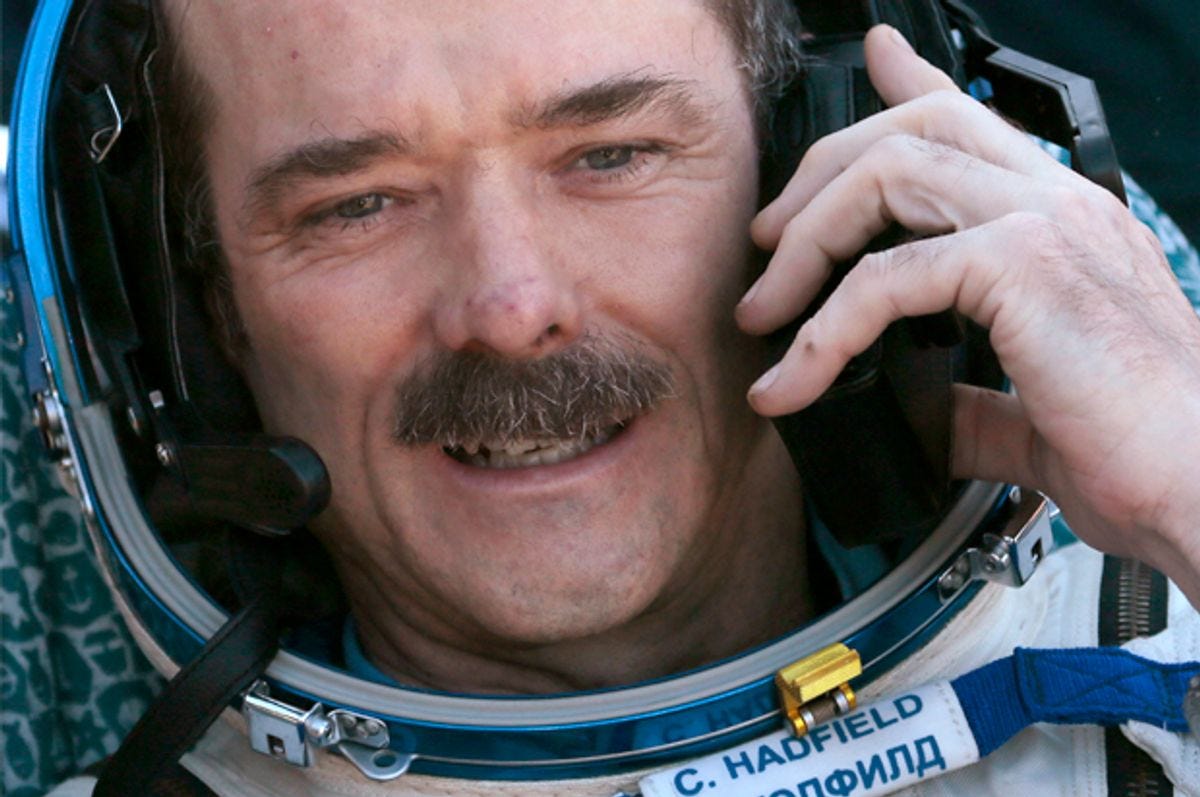What Do You Do Next?
“What do you do next?”
That was the question posed to us by astronaut Chris Hadfield during his closing keynote address at an event I was emceeing last week for Motorola Solutions.
It’s a powerful albeit somewhat intimidating question to always be considering.
It’s powerful because it focuses on what you can control, at both the micro and macro level.
Chris shared a story about one of his trips to space where something went wrong that they didn’t expect. Rather than dwell on why it went wrong or who was at fault, he asked of himself and his team: “what do we do next?”
You can apply this to the small moments in your daily life: someone cuts you off in traffic? What do you do next? Do you laugh it off and forget about it? Or do you let it irritate you and put you in a bad mood for the rest of the drive?
It also applies to the big ones. If you encounter a major setback, like you get fired or go through a break-up, what do you do next? How do you react? With grit and resilience? Apathy and defeat? Ben and Jerry’s?
While there is debate over how much of our happiness we control, the general consensus is that at least some percentage of it is based on how we choose to react to what happens to us. It’s about the action: what do you do next?
It also mirrors very closely the Yes And mindset of improvisation. The “yes” suggests that you acknowledge the offer that was given (either a line from your scene partner or circumstances in life). The “and” suggests that you need to do something about it.
That’s why it’s powerful: it’s controlling what you can control.
However the advice can feel intimidating as well because it implies that you’re never done. Because you have to ask that question when things go poorly AND when they go amazingly.
Take Chris for example. He has flown in 3 missions, built 2 space stations, performed 2 spacewalks, crewed the Shuttle and Soyuz, and in 2013 became the commander of the International Space Station for six months off planet.
One would think you could retire and live on a beach after all of that. But he’s arguably even busier now.
He helps manage multiple businesses, is an in-demand keynote speaker, he’s authored 5 books (including 2 novels and a kids book), is in a band, and has more than 2 million followers online.
To quote the musical Hamilton, “the man is nonstop.”
I wrote last week about the importance of taking time to recognize hard work (from yourself and others). And that’s something Chris spoke about as well. He said, “Celebrate frequently. Drop the bar for what you celebrate as low as possible.”
But then it’s back to what’s next. Which is why we probably have so many cliches about how you have to keep on progressing:
“You’re only as good as your last game.”
“What have you done for me lately?”
“You don’t want to Season 8 Games of Thrones this thing.”
(That last one might have just been something I told a friend recently.)
That’s both exciting and exhausting.
It’s exhausting because it means work, growth, projects, life is nonstop.
I just spent the last month prepping for my Dry Bar Comedy Special. And I paused for all of one Sunday (which happened to be the Super Bowl and my birthday) before heading to Orlando to emcee this 3-day event. Then it was back home for a few days and then on to Scottsdale to give a closing keynote before I head to San Antonio to facilitate a half-day workshop before going to Miami for another speaking event, followed by hiking a volcano with some friends…
It’s a lot. But that’s what also makes it exciting.
If you’ve been successful recently, congrats! What do you do next?
If you’ve been down recently, I’m sorry to hear. What do you do next?
And if it becomes too much, it’s perfectly reasonable for the next thing is to stop, recover and reassess.
So my question for you is: what is your next thing? Feel free to share. And if you’re thinking about making your next thing a “big” next thing, join us at the February Virtual Happy Hour on February 29 where we’ll be celebrating leap day by talking about what it takes to take a leap.
Until next time,
=Drew
PS. If you also want to get inspired by Chris, here's his TED Talk.




